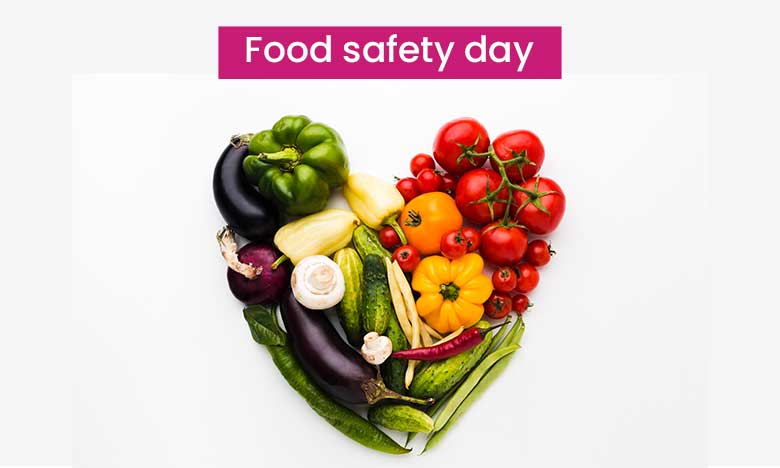Food Safety Day

Food safety is a critical concern in our hospital, and we follow a multidisciplinary approach that involves various stakeholders. Here are some key aspects we focus on to ensure food safety:
FSSAI License: All food outlets in our hospital have obtained the necessary FSSAI license, as regulated by the Food Safety and Standards Authority of India. This ensures compliance with the required standards and regulations.
Good Quality Ingredients: The dietetics department checks the quality of ingredients on a daily basis. We source high-quality ingredients from reliable suppliers and ensure their freshness and proper storage conditions.
No Additives or Colors: We minimize or eliminate the use of additives and artificial colors in our food preparations. This helps maintain the natural integrity of the food and reduces potential health risks associated with certain additives.
Food Handlers’ Hygiene: The hospital’s Infection Control team oversees the hygiene practices of our food handlers. They ensure that food handlers follow proper hygiene practices, such as wearing gloves, masks, head caps, and maintaining clean hands with short nails. Regular health check-ups and vaccinations, including those for diseases like typhoid and COVID-19, are also mandatory for food handlers. The Infection Control team maintains records of all food handlers’ health check-ups and vaccination status.
Hygienic Food Preparation: Our food is prepared in a clean and hygienic environment, following strict food handling practices. We use clean utensils, avoid cross-contamination, and maintain appropriate cooking temperatures to kill harmful bacteria.
Thorough Washing of Vegetables: We ensure that vegetables are thoroughly washed before use to remove any dirt, pesticides, or contaminants present on their surfaces.
Safe Water for Cooking: We use safe and potable water for cooking to avoid waterborne illnesses. Our water quality meets the necessary standards for consumption.
Proper Food Storage: We store food in closed containers to prevent contamination and the growth of harmful bacteria. This practice helps maintain the quality and extends the shelf life of the food.
Regular Pest Control: The facilities management team implements regular pest control measures, including inspections and appropriate pest management techniques. This helps prevent infestations and the contamination of food.
Proper Waste Disposal: We follow proper waste management practices, including separating food waste from recyclable waste. Food waste is disposed of through composting or other appropriate methods to prevent the spread of diseases and ensure proper sanitation.
In addition to these measures, we have implemented additional steps to enhance food safety in our hospital:
Food Safety Committee: We have a dedicated Food Safety Committee consisting of representatives from different departments, including Administration, Microbiology, Hospitality Management, Physicians, Infection Control Nurses, Food Handlers, and Dieticians. This committee oversees and monitors food safety practices, develops and implements food safety policies, conducts risk assessments, and ensures compliance with regulations.
Regular Audits by Hospital Infection Control Team: The Hospital Infection Control Team conducts monthly audits specifically focused on food safety. These audits evaluate hygiene practices, proper storage and handling of food, adherence to protocols, and overall compliance with food safety standards. Any identified issues or non-compliance are promptly addressed to maintain a safe food environment.
Training in Food Safety: We provide comprehensive training sessions and workshops on food safety to all food handlers and staff members. These training programs cover various topics, including personal hygiene, proper food handling techniques, cross-contamination prevention, allergen management, and cleaning and sanitization procedures. Regular refresher courses are conducted to reinforce good practices and keep our staff informed about the latest developments in food safety.
Supervision by Dietetics: Our dietetics professionals provide supervision and guidance on menu planning, nutritional requirements, allergen management, and special dietary needs. They work closely with food handlers to ensure proper food preparation, portion control, and adherence to dietary guidelines, ensuring both food and patient safety.
By incorporating these components and following food safety regulations, we significantly reduce the risk of foodborne illnesses and maintain a safe and healthy food environment in our hospital.
Dr. Parinitha
Hospital Infection Control Committee


